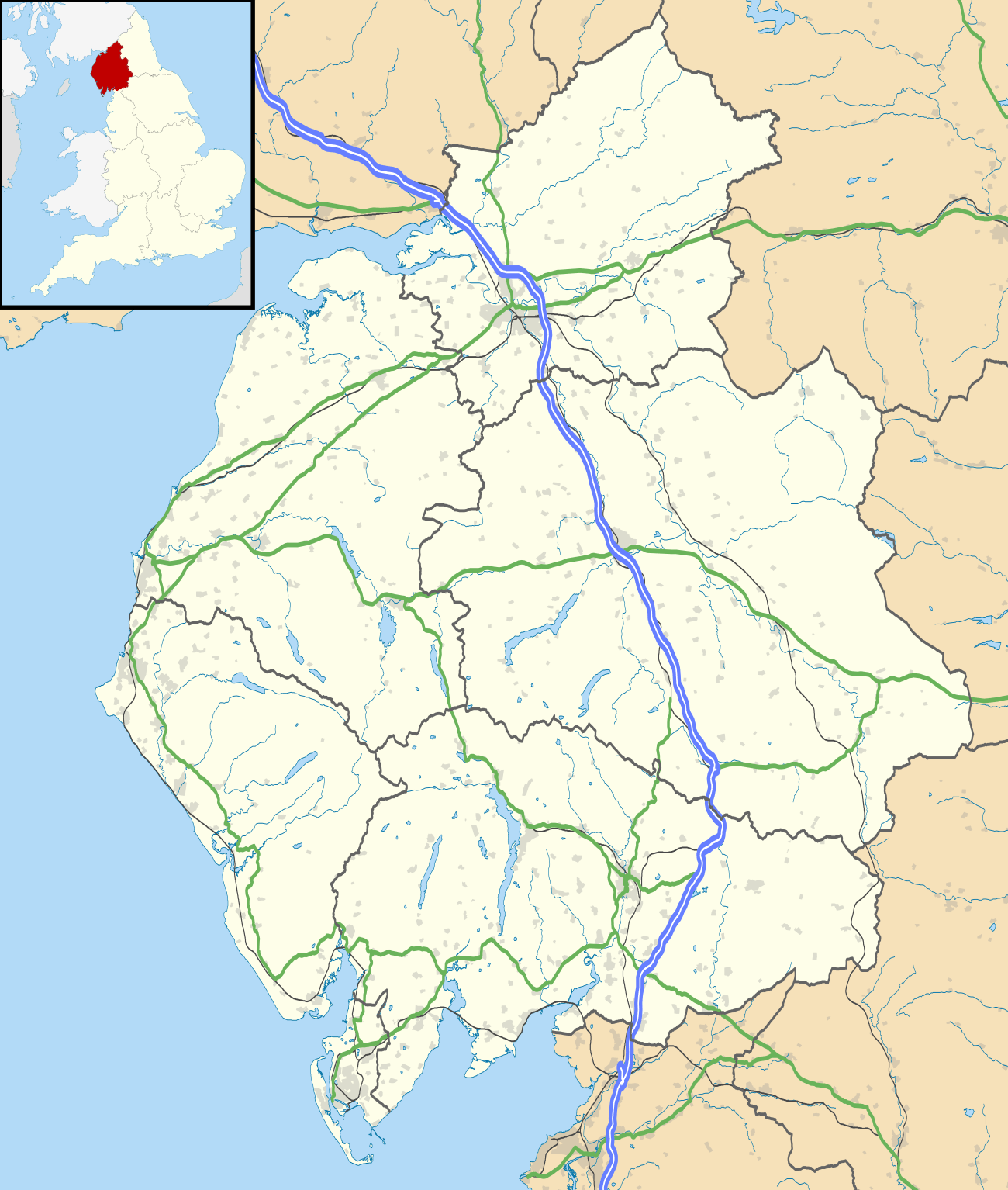Winton, Cumbria
Winton is a village and civil parish in the Eden District of Cumbria, England. It is 2.9 miles (4.7 km) south of Brough, and 1.6 miles (2.6 km) north of Kirkby Stephen, and has a population of 213,[1] increasing to 327 at the 2011 Census.[2] The word Winton is Old English or Anglo-Saxon in origin, Wyntuna meaning a pasture farmstead was first identified in 1094, shortly after the Norman Conquest, during a period known as the 'Harrying of the North'. [3] On 12 April 1659, the village of Winton was at the centre of the Westmorland witch trials, during which several women were hanged at Appleby General Sessions, found guilty of bewitching Margaret Bousefield.[4]
| Winton | |
|---|---|
 Millennium Monument | |
 Winton Location within Cumbria | |
| Population | 327 (2011(including Kaber)) |
| OS grid reference | NY7810 |
| Civil parish |
|
| District |
|
| Shire county | |
| Region | |
| Country | England |
| Sovereign state | United Kingdom |
| Post town | KIRKBY STEPHEN |
| Postcode district | CA17 |
| Dialling code | 01768 |
| Police | Cumbria |
| Fire | Cumbria |
| Ambulance | North West |
| UK Parliament |
|
During the Middle Ages Winton was at the centre of the sheep rearing in the Eden Valley, where the flocks moved across the hills into pastures new. More controversial was the part played by the Archbishop of York in dealing with invasions by Scots armies, raiding, looting and burning, sheep-stealing. On 5 October 1357 the local bishop was required to accept the redemption of King David Bruce of Scotland, for the Suffragan Michael of York held sway in the mountains of the West March.[5][6]
Both Kirkby Stephen and the village of Winton had a grammar school each, where its major benefactor was a Cambridge educated teacher. Richard Burn helped found the free school that took all children from the neighbouring parishes.
Notable people
- John Langhorne (poet)
- Richard Burn, school benefactor
See also
References
- Office for National Statistics : Census 2001 : Parish Headcounts : Eden Retrieved 26 October 2010
- "Parish population 2011". Retrieved 21 June 2015.
- A Dictionary of British Place-Names
- Paranormal Cumbria (2012)
- Register Edendon Winton
- Church of Cumbria and Strathclyde (1873)